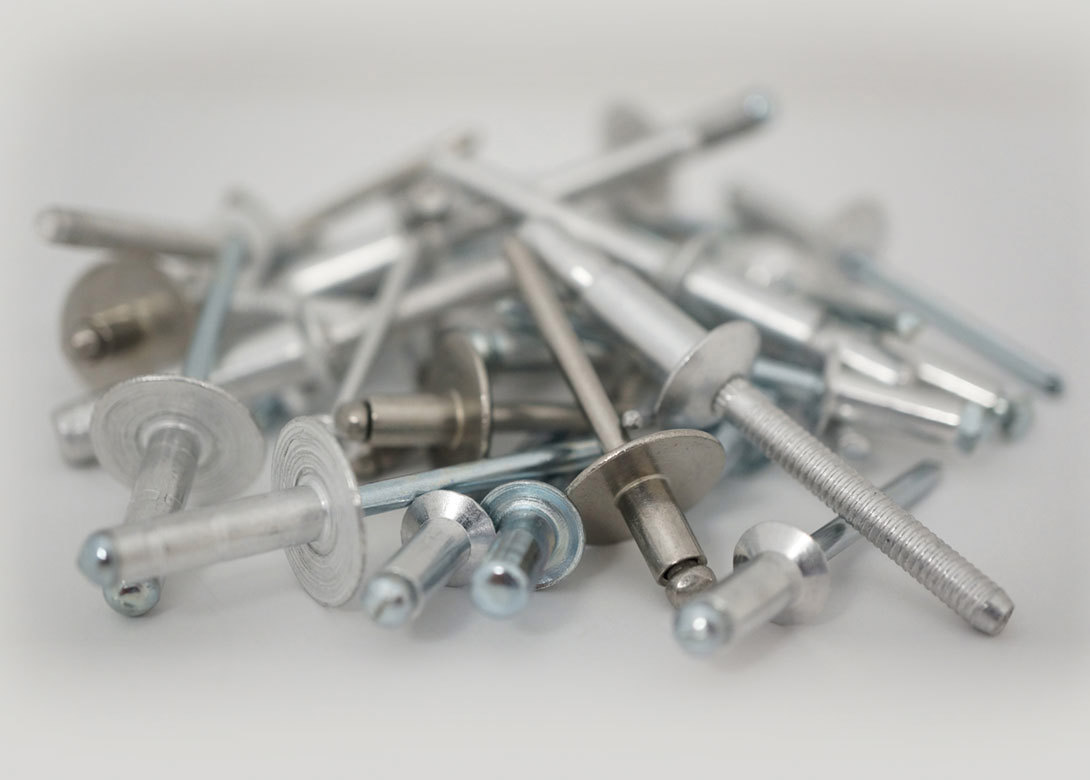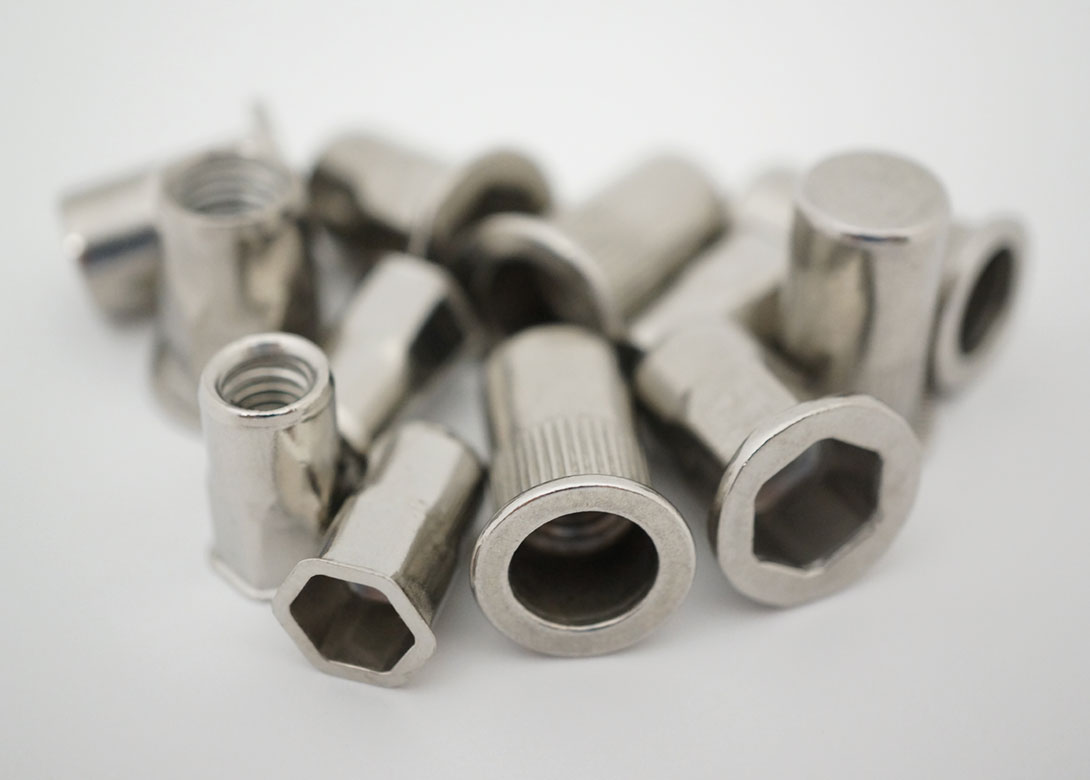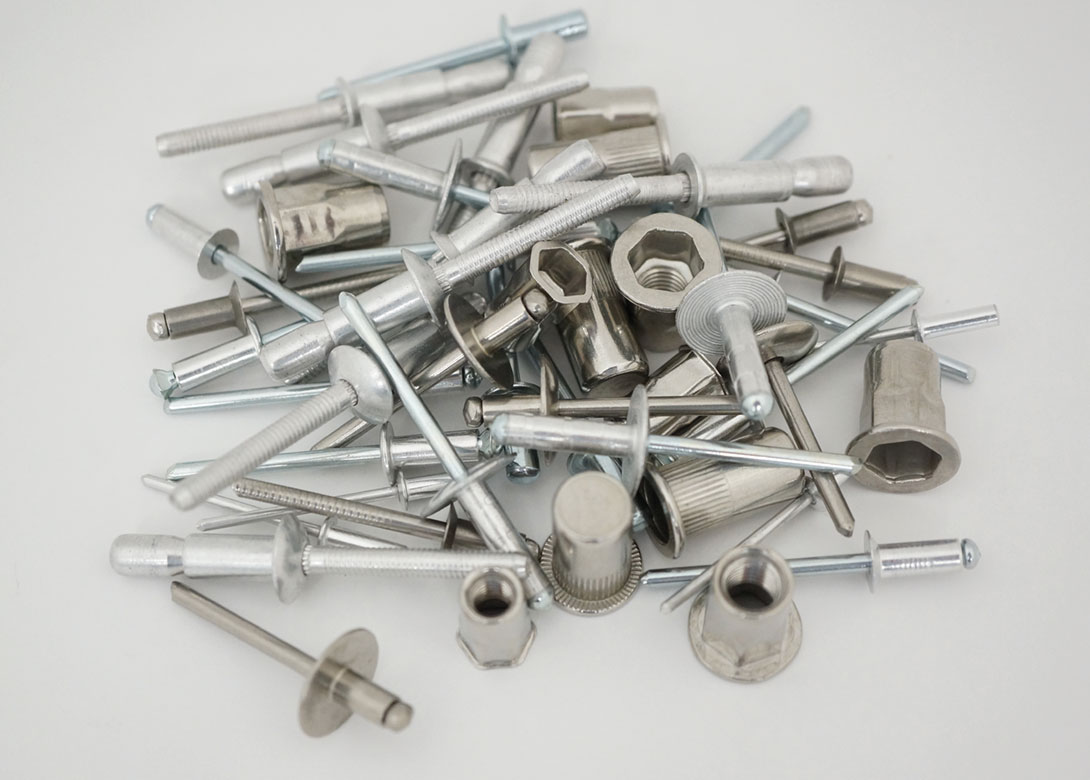
In March Hexstone, which trades as Owlett-Jaton, successfully launched its new JRP range into the UK market. In addition to over 1,000 lines of high-quality rivets, rivet nuts, and tools, the JRP range is also supported by a first class technical support service. Editor Will Lowry spoke to Technical Manager Reza Jafari about the importance of this technical support and the role quality plays within the range.
When Hexstone first contemplated the launch of the JRP range it decided to use the same business model as its JCP construction fixings range, which was successfully launched over a decade ago. “The introduction of the JRP range has almost been a mirror image of how the JCP brand was introduced to the market,” states Reza Jafari. “A key factor in the success of JCP was the technical support we could offer alongside the range and we quickly realised if this new range was to be successful, it would need a similar commitment to the technical knowledge of rivets.”
Reza continues: “There are a multitude of considerations a user needs to make when picking the correct rivet and as a wholesaler we needed to be able to support our distributor customers with this technical insight. It was only once we had added this type of knowledge within Hexstone that we were able to push ahead with the launch of JRP.”
That technical understanding and insight was first used when agreeing the quality requirements with the manufacturers chosen to produce the rivets. “We travelled to China to audit the factories, visiting 15 factories within 5 days, and we looked at which manufacturers could meet our specifications and standards,” mentions Reza. “Normally when you visit a manufacturer you focus on what quality controls, and traceability, it has within the production process. This includes how the raw material is stored, the specific grades of materials it can produce, even what type of housekeeping it has on the production floor. Whilst we carried out all these checks, we also had technical specifications for the products we needed the manufacturers to meet – often going beyond the DIN 7337 standard requirements for rivets.”
Reza adds: “DIN 7337 provides uniform tolerances on key dimensions, such as a minimum and maximum diameter on the body, maximum diameter on a head, etc. However, when putting together the JRP range we had certain requirements that were higher than those set out in DIN 7337. For instance, as part of the standard, the protrusion of the mandrel from the head of the rivet is a critical dimension, but only as a minimum distance. When produced, if a rivet is only slightly below that minimum requirement then the setting tool will not be able to grab hold of the pin to set the rivet – so the application will fail. We have therefore increased the minimum requirements of the mandrel length so we can avoid any issues.”
Through the technical know-how within the business, and through understanding the needs of the customers, Hexstone increased key requirements for certain aspects of its JRP rivets above the DIN standard. “Rivets are quality products that go into critical applications and we needed to make sure the technical aspects of every rivet we sell meet the highest standards,” states Reza.
Another part of the rivet production process that Hexstone focused on was the heat treatment. “Heat treatment is very important for rivets and rivet nuts as it is used to help create the ‘crimp’, which is where you want the product to ‘snap’ when correctly installed,” explains Reza. “If the heat treatment process is not done properly then it could lead to the rivet mandrel snapping in the wrong place, which can create a whole host of problems and lead to improperly installed rivets. We therefore paid great attention to where manufacturers were getting products heat treated and if it was a subcontractor, we visited them as well.”
By checking the quality procedures in place; increasing the production specifications; as well as the practices in place regarding heat treatment; Hexstone was able to use its technical insight to create a complete set of criteria to ensure the very highest quality rivets and rivet nuts for its JRP range.

Complete riveting portfolio
The JRP range includes a wide selection of rivets, including standard, sealed, multigrip, peel, grooved, load spread, load spread with washer, and structural rivets.
Each type is available in a variety of materials such as aluminium, steel zinc and Clr Tri3, A2 stainless steel, A4 stainless steel, and copper. The sizes available range from 2.4mm up to 9.8mm depending on the product. Head types include dome head, countersunk and flange.
The rivet nuts within the JRP range include flat head knurled round open, flat head knurled round closed, countersunk head knurled round open, countersunk knurled round closed, reduced head knurled round open, reduced head knurled round closed, flat head full hexagon open, reduced head full hexagon open, flat head part hexagon open and reduced head part hexagon open. These are available in aluminium, steel zinc and Clr Tri8, A2 stainless steel and A4 stainless steel – from M3 to M12, depending on the product. There are also seven tools within the JRP range, including three for rivets and four for rivet nuts. Plus, there are over 50 lines of spares including replacement heads and additional sized heads. The range is supported by its own branded recyclable packaging – making it easier for customers to identify the JRP range.
Training, training and training
After ensuring the production process was of the very highest standards, and agreeing on the portfolio of products, the next step was to make sure the technical support its sales team could offer customers was also first class. “Rivets are very technical products and if you are going to become a leading supplier then you need to be able to help customers with technical questions and that means training, training and more training,” states Reza.
This training focused on how rivets are made, what purposes they serve, how they work, what applications they can be used in, as well as common technical problems. “There are a lot of issues that end users face every day that our distributor customers might not be able to answer themselves, which is why we wanted to provide the answers and ensure the right riveting products are being used for the right applications.”
To help customers with these questions, Hexstone has created a selection guide to support its sales team in suggesting the correct products. “When it comes to rivets the primary factors are going to be the shear and tensile forces needed for the joint,” points out Reza. “There are then a whole series of questions that can be asked such as what materials is the application made from? What is the thickness of the materials to be clamped? What is the grip range? How big is the hole to install? What head style is wanted? What is the length? What is the finish? By training our sales team to ask these key questions they can then suggest the correct options from the range.”
Dedicated technical catalogue and website
To go alongside the technical training of its sales team, Hexstone has also introduced a JRP Technical Catalogue and website to support customers, which is broken down into five rivet product groups – standard, multi-grip, sealed, specialist, and structural, as well as two rivet nut product groups – round and hexagon.
“The catalogue describes in detail all the different types of rivets and rivet nuts we are able to supply, the different head styles available, and the key features and benefits of each product,” explains Reza. “It also includes technical data on how to measure and install rivets and rivet nuts, as well as a handy table that breaks down the types of products in the JRP line – plus the materials and dimensions available. There is even a product suitability guide, which shows which type of rivets/rivet nuts are most commonly used in certain industries.”
Reza concludes: “We want to make it as easy as possible for customers to add the JRP line to their portfolio. That is why we have worked closely with manufacturers to guarantee quality; why we have added technical knowledge within our team to confirm products details; as well as why we have introduced technical data and insight via a catalogue. The same technical information is also available on the website along with the option to download the catalogue. By doing this we can give distributors all the information they need so they can be confident in joining the JRP family.”


Will joined Fastener + Fixing Magazine in 2007 and over the last 15 years has experienced every facet of the fastener sector - interviewing key figures within the industry and visiting leading companies and exhibitions around the globe.
Will manages the content strategy across all platforms and is the guardian for the high editorial standards that the Magazine is renowned.
Don't have an account? Sign Up
Signing up to Fastener + Fixing Magazine enables you to manage your account details.